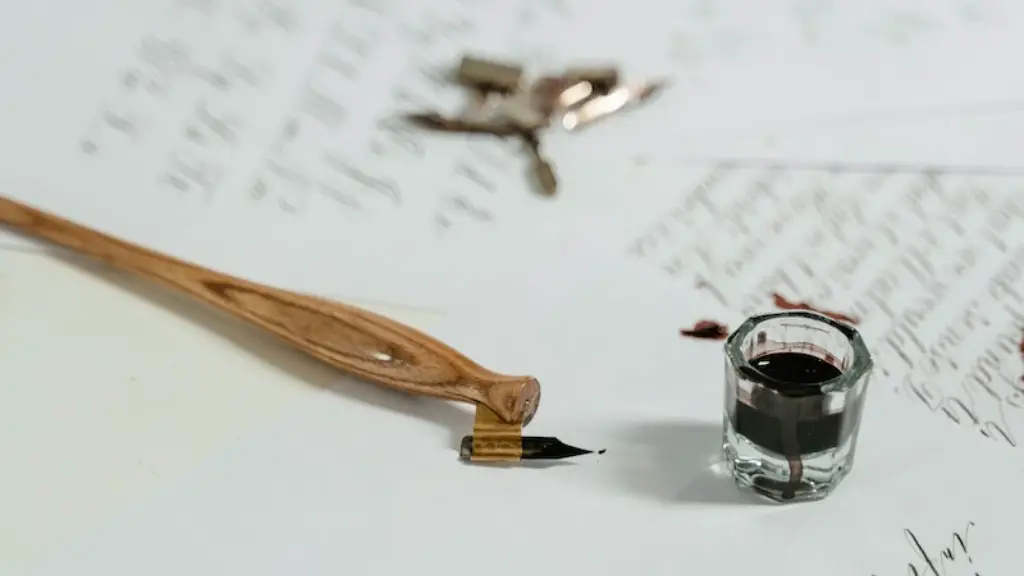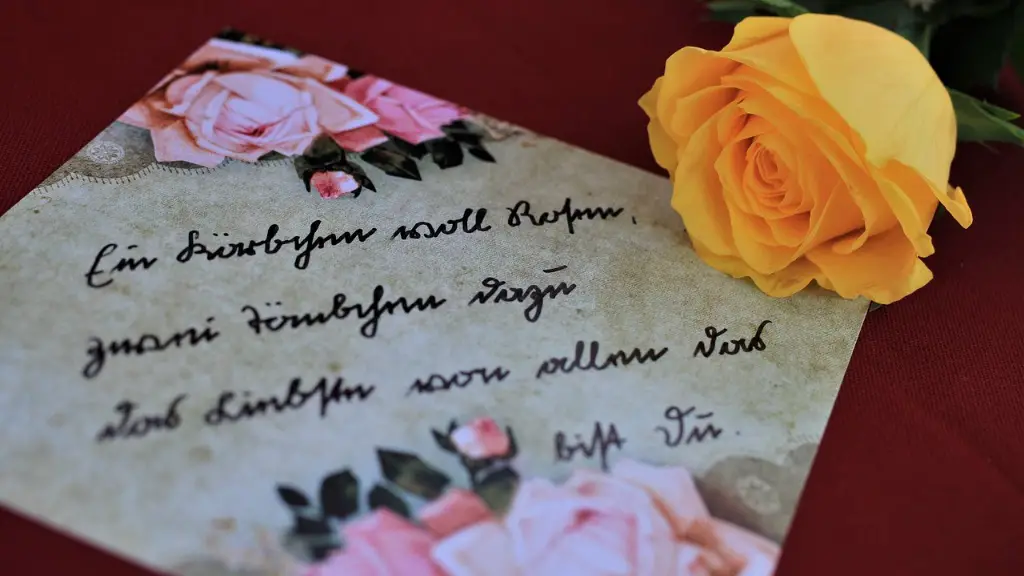How to Write a Cover Letter for Submitting Poetry
Submitting poetry is a great way to share your writing, build a portfolio of published works, and reach a wider audience. A well-crafted cover letter, sent alongside your submission, can go a long way to helping get your poetry accepted. Here are some tips for making sure your cover letter stands out and makes a good impression.
Start by introducing yourself and explain why you are submitting your work. You can either give a short profile of yourself or focus on the piece of poetry you are submitting. Be sure to touch on any awards, publications, readings, or membership in writing groups that may be relevant to the poem or to you as a poet. Demonstrating both a commitment to your craft and an understanding of the publication’s tastes can be helpful when editors are deciding which pieces to accept.
The next step is to explain why your poem is a good fit for the publication, and why readers will appreciate it. For this, detail the poem’s universal themes and how they are treated throughout the work. You might also discuss aspects such as its structure, the language used, and its attention to poetic conventions.
In the next section, share any success stories or acknowledgement the poem has had. This might include awards, contests, magazines, or websites that accepted the poem. Even if it’s never been published before, talking about feedback that you’ve received from readers or beta-readers can show that readers have responded well to your poem.
Finally, consider mentioning any anthologies, special collections, or features where the poem may fit. Then give information on how the poem is available for digital or hard-copy submission and whether or not it is currently unpublished. You should also thank the editor for considering your poem and offer any other biographical details or publications that may be relevant.
As a poet, you may be submitting to multiple publishers so it’s important to make sure that your cover letter is uniquely tailored to each publication. Editors look for personalized letters that demonstrate an understanding of their work, rather than generic templates. Try not to exaggerate your skills or achievements, and be truthful in your assessment of your poem – honesty is always highly valued.
Crafting a successful cover letter involves a combination of research, experimentation, and dedication. By learning what editors are looking for, and making sure that your ideas are presented in the most effective way, you can showcase your work in the best possible light. Following the above tips will help you create a strong cover letter that stands out from the crowd.
Pay Attention to Details
One of the most important aspects of writing a cover letter for submitting poetry is taking the time to look for the details. Before you start writing, make sure you’ve done your research and gathered as much information about the publication or submission call as you can. For example, is the poem required to be unpublished, does the call specify meter and form, should the poem be double-spaced, etc? Showing that you’ve taken the time to consider these details and followed the guidelines will give the editor the impression that you are committed and have an understanding of their needs.
Additionally, when you’re writing the cover letter, make sure everything is formatted correctly and is error-free. Typos and other mistakes make it difficult for editors to take your submission seriously. They may also signal that you have rushed your work, or haven’t paid sufficient attention to detail. Therefore, always proofread your work before you submit.
Finally, don’t forget to include contact information, a bio of yourself, and the title of the poem which is going to be submitted. These things provide the editor with vital information about you as an author and the poem you are submitting.
Personalize Your letter
It’s important to make sure that your cover letter is personalised and tailored to the publication you are submitting to. Writing a generic cover letter with the same form in every submission is a surefire way to get rejected. Instead, try to make your cover letter stand out by showing that you’ve done your research and considered their interests, style of poetry, and specific tastes.
For example, if the publication recently released an issue on nature poems, you could spend some time reading their previous issues and studying the kind of writing they’re most likely to accept. Your cover letter should then show that you have a genuine understanding of their work and are submitting your poem because it fits in with their style. Demonstrating this level of research and familiarity with the publication puts you on a whole different level from authors who simply send out generic cover letters.
Be Confident and Passionate
Make sure your cover letter projects confidence and enthusiasm. Editors want to be sure that you are passionate about your poem and genuinely believe in its message and value. This kind of assurance and commitment could convince a potential publisher that your poem is worth their time.
You should also make sure that the language used in your letter is uplifting and encouraging. A positive outlook is more likely to grab the editors attention and make them interested in your work. Balance confidence with humility; be proud of your work but avoid being overly boastful and arrogant.
When possible, use emotional language to grab the reader’s attention. Showing that the poem was written with both skill and passion might be just the thing that gets it accepted. Statements such as ‘I wrote this piece because…’ or ‘This poem is my proudest work yet..’ can be potent statements that can help persuade an editor.
Convey Your Knowledge and Expertise
Editors are usually looking for authors who already have some amount of knowledge and experience in the field of poetry. It’s important to demonstrate that you know what you’re talking about and can bring something new to the table. Talk about your experience as a poet and provide examples of any workshops, readings, or experiences that might be related to your work.
As a way to show your expertise, you can include a quote or mention some other inspiring conventional or contemporary poets who have had an influence on your work. You could also point out any current trends in the poetry world that your poem may be representing. All of these serve to create an impression that you have an understanding of current trends in the field of poetry.
End with a Testimonial
When you’re writing the cover letter, it’s a good idea to include a testimonial from someone who has read or experienced the poem or your other works. This shows the editor that someone else appreciates your work and that other people are already responding to it in a positive light. Such an endorsement could be enough to persuade the editor that your poem is worth publishing.
If you’ve had your poem featured in any anthologies, it’s always a good idea to mention these too. This shows that other editors and publishers already believe in your poem and that it is of a high enough quality to be included in other collections.
In the end, writing a great cover letter is really about showing that you have the skills and commitment to produce top-notch work. With the right attitude and attention to detail, you can write a convincing and successful letter that is sure to make a good impression.





